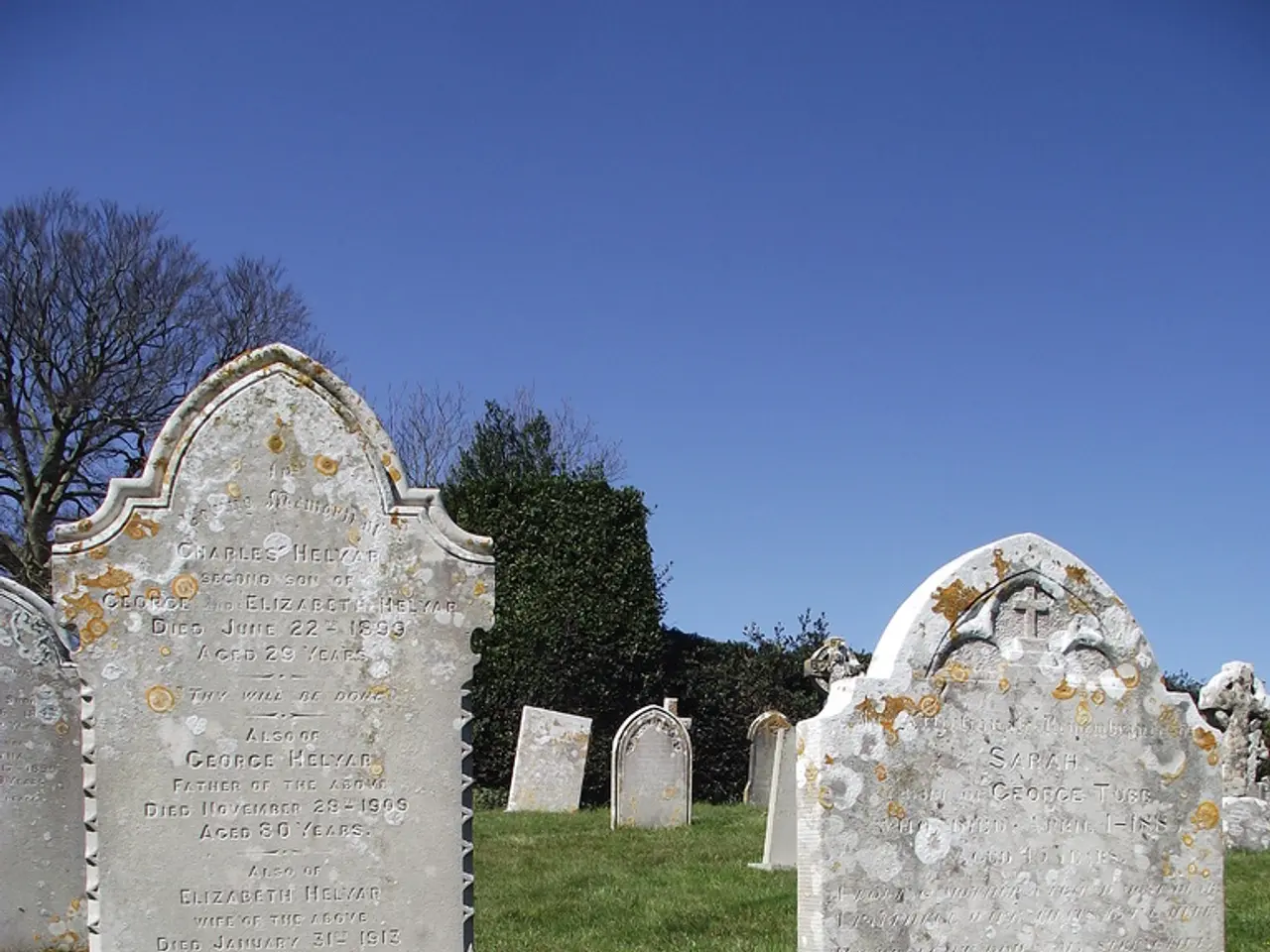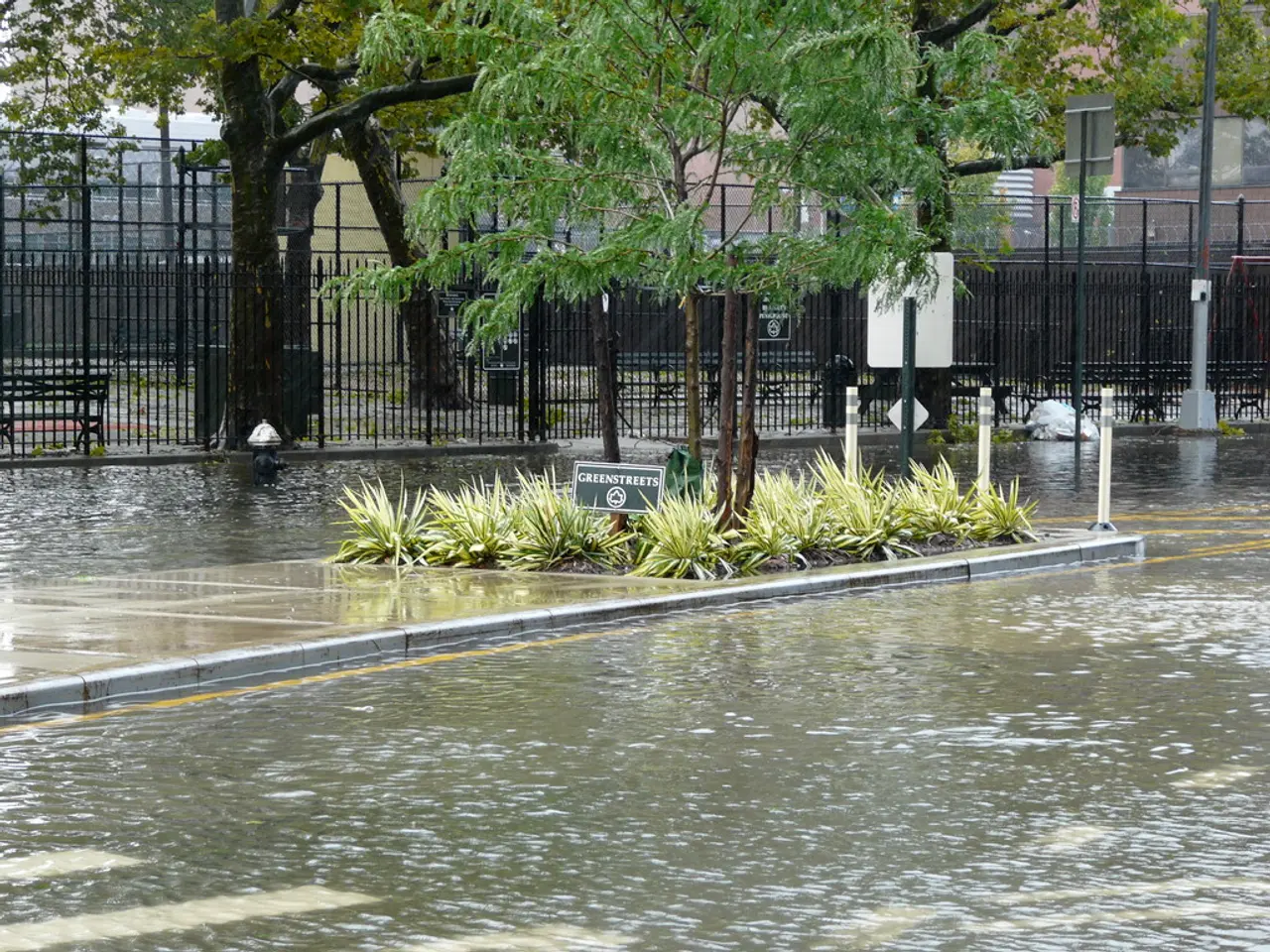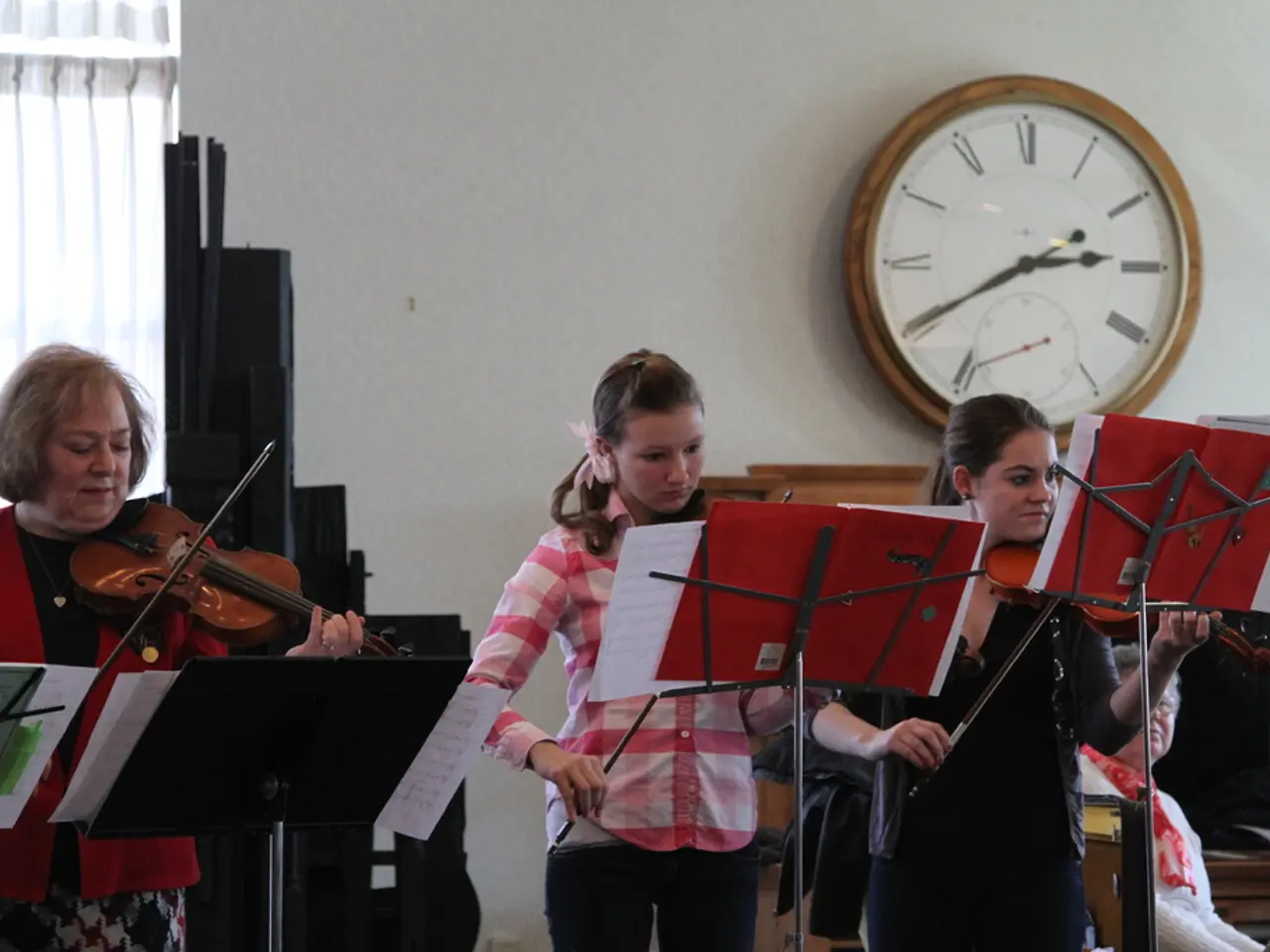Sudanese volunteers assist families in providing decedent war victims in Khartoum with dignified funerals
In the heart of Sudan, the ongoing civil war between the Sudanese Armed Forces (SAF) and the Rapid Support Forces (RSF) has taken a devastating toll on the lives of innocent people. As of mid-2025, the total war-related death toll in Sudan, including Khartoum, could exceed 150,000 people, combining deaths caused by conflict, famine, disease, and lack of healthcare.
The city of Khartoum, specifically, has been a hotbed of violence, with over 61,000 people losing their lives between April 2023 and June 2024, according to a study by the London School of Hygiene and Tropical Medicine. The ongoing conflict has resulted in intense fighting, airstrikes, and attacks on civilian infrastructure, causing numerous casualties.
The exact number of those killed or missing directly in Khartoum after June 2024 is less detailed publicly, but given the continued hostilities and humanitarian crises, it is assumed that the casualties remain very high.
The humanitarian situation in Sudan is catastrophic, with over 30 million people needing assistance and widespread displacement internally and across borders. Many civilians have been killed indirectly due to malnutrition, cholera outbreaks, and shortages of medical supplies.
The fighting continues with indiscriminate attacks, including targeting hospitals and prisons, contributing to ongoing casualties. Teams of workers are searching vacant lots for graves based on information from survivors, and the Red Crescent team estimates there could be 10,000 bodies buried in makeshift graves across the city.
The conflict has displaced at least 3.5 million people from greater Khartoum, according to the UN Development Programme. Red Crescent volunteers are exhuming the dead from makeshift graves in Khartoum, Sudan. More than 61,000 people died in the capital during the first 14 months of war, representing a 50% increase on the pre-war death rate.
The fighting in Khartoum took place between the regular army and the paramilitary RSF. Similar mass graves have been uncovered across the capital, with 2,000 bodies reburied so far. The United Nations estimates that up to two million people may return to Khartoum state by the end of the year, but this depends on whether security and basic services can be restored.
The extreme human cost of the ongoing conflict is evident in the countless lives lost and the heart-wrenching stories of those affected. Jawaher Adam, a resident of Khartoum, lost her 12-year-old daughter during the fighting and buried her in the neighborhood. Each body is disinfected, wrapped, and labelled by Red Crescent volunteers before being transported to Al-Andalus cemetery.
The exact death toll is difficult to establish due to the lack of access to hospitals in densely populated residential districts. However, these numbers reflect the extreme human cost concentrated in Khartoum and across Sudan amid the ongoing civil war and associated crises.
- The ongoing civil war in Sudan, specifically in Khartoum, has resulted in a news story about war-and-conflicts that is being closely followed by the international community.
- As the conflict in Sudan continues, the city of Khartoum has become a significant focus for sport halted by the ongoing violence, with many athletic facilities destroyed or unable to operate.
- In addition to the tragic casualties and displacement caused by the war, the humanitarian crisis in Sudan has also affected access to general-news and information, with traditional media outlets struggling to operate amidst the chaos.
- As the situation in Sudan continues to deteriorate due to the ongoing civil war and associated crises, crime-and-justice has become a growing concern, with reports of increased looting and lawlessness in devastated areas.








